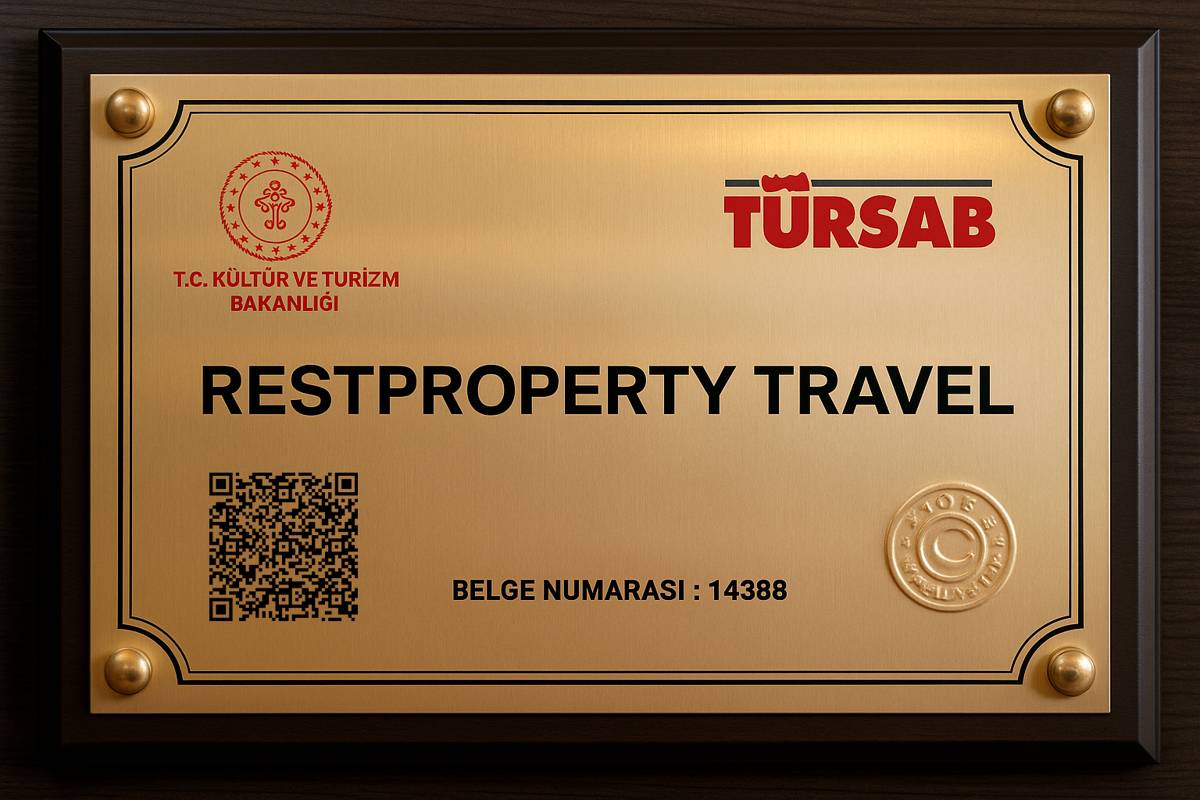What to Check Before Letting Your Property in Turkey

What to Check Before Letting Your Property in Turkey
Renting out your property in Turkey can be a great way to generate steady income — whether you own an apartment in Alanya, a villa in Antalya, or a holiday home by the sea.
However, before handing over the keys, every landlord should carefully check key legal, technical, and financial details to ensure the process is safe, profitable, and fully compliant with Turkish law.
Here’s a comprehensive landlord checklist to follow before letting your property in Turkey.
1. Verify Property Ownership and Documentation
Before renting out your property, make sure all ownership and legal documents are up to date.
Essential documents include:
- TAPU (Title Deed) — proof of ownership.
- DASK (compulsory earthquake insurance).
- Energy Performance Certificate (EPC).
- Tax number (Vergi Numarası) — required for all rental income.
- Residence certificate (İskan) for apartments in new buildings.
If any of these are missing, a licensed real estate agency such as RestProperty can help you renew or obtain them legally.
2. Ensure the Property Is Legally Eligible for Rental Use
Not every property can be legally rented out — especially for short-term rentals (under 100 days).
You must check:
- Whether your building management (site yönetimi) allows rentals.
- If you plan to rent short-term, ensure the property qualifies for a TÜRSAB rental license under Law No. 7464 (2023).
- The property must meet fire safety and hygiene standards (smoke detectors, first aid kit, fire extinguisher, emergency numbers).
Failing to comply can result in fines up to 1,000,000 TL or suspension of your rental license.
3. Inspect the Property’s Condition
A property inspection before renting is crucial. It ensures your apartment or villa is ready for tenants and prevents later disputes.
Check the following:
- Plumbing, electricity, and air conditioning systems.
- Condition of furniture, windows, and doors.
- Kitchen and bathroom fixtures.
- Internet and utilities.
- Locks and keys — change them if needed.
Tip: Document everything with photos before move-in and include them as an annex to the rental agreement.
4. Screen Your Tenants Carefully
Proper tenant screening helps you avoid payment issues and property damage.
When selecting tenants:
- Request a copy of their passport or Turkish ID.
- Check employment or income proof (for long-term rentals).
- Ask for references if possible.
- Avoid cash-only renters or those refusing to sign official contracts.
A professional agency like RestProperty verifies each tenant’s background and ensures all contracts are transparent and legal.
5. Prepare a Legal Rental Agreement
A written rental agreement (kira sözleşmesi) protects both parties and is required under Turkish law.
Your rental agreement in Turkey should clearly specify:
- Rental period and renewal terms.
- Monthly rent and deposit amount.
- Payment method (bank transfer only).
- Maintenance and utility responsibilities.
- Rules about subletting or property damage.
For foreign owners, the contract should be bilingual — in English and Turkish — and, ideally, notarized for additional protection.
6. Set Up Tax and Payment Procedures
Rental income in Turkey is taxable, and landlords must comply with local tax regulations.
Key points:
- All rent payments must go through a bank account — cash is illegal.
- File an annual rental income declaration.
- Tax rates range from 15% to 45% depending on income.
- Certain expenses (repairs, agency fees) can be deducted to reduce taxable income.
If you live abroad, RestProperty’s property management team can handle tax declarations, utility bills, and financial reporting for you.
7. Consider Property Maintenance and Cleaning Services
Regular maintenance keeps your property’s value high and ensures a positive tenant experience.
Professional property management in Turkey includes:
- Routine cleaning and inspections.
- Repair coordination and supervision.
- Payment of all bills and site fees.
- Preparing the property between tenancies or guest stays.
RestProperty offers full property management services for foreign owners — from maintenance to 24/7 tenant support — so you can earn passive income worry-free.
8. Register Guests for Short-Term Rentals
If your apartment is rented for short-term or holiday stays, you must:
- Have a TÜRSAB short-term rental license.
- Register every guest in the Kimlik Bildirim System within 24 hours.
- Display your license number on all online listings (Airbnb, Booking, etc.).
This process ensures compliance and protects you from penalties for illegal rentals.
9. Understand Your Responsibilities as a Landlord
As a landlord in Turkey, you’re legally responsible for:
- Providing a safe and habitable property.
- Paying all relevant property taxes and fees.
- Keeping up with maintenance and repairs.
- Reporting your income accurately.
Professional agencies like RestProperty help foreign owners meet all these obligations through legal guidance, management, and tax services.
10. Partner with a Licensed Agency — RestProperty
Working with a licensed property management company ensures your property is rented safely, legally, and profitably.
RestProperty, founded in 2003, is one of Turkey’s most trusted real estate agencies, officially registered with TÜRSAB (Association of Turkish Travel Agencies).
This confirms the company’s right to conduct tourism rental and property management operations across Turkey.
Why landlords choose RestProperty:
- 20+ years of experience in Alanya, Antalya, and Istanbul
- Legal and tax compliance for all rental types
- Tenant verification and secure contracts
- Full maintenance and reporting service
- Multilingual team (English, Russian, Turkish)
With RestProperty, every stage of letting — from documentation to tenant management — is handled professionally, so you can enjoy effortless, legal rental income.
Conclusion
Before letting your property in Turkey, check all documents, ensure the property meets legal standards, and verify your tenants.
Partnering with a TÜRSAB-licensed agency like RestProperty guarantees that your rental process is safe, profitable, and fully compliant with Turkish law.

✅ RestProperty — your trusted partner in legal and profitable property letting in Turkey.





